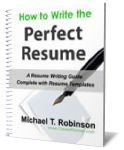"Biochemical Engineer"
Job Description - Part 2 - Typical Daily Activities
Part 1
Duties / Tasks
Part 2
Activities
Part 3
Skills
Part 4
Abilities
Part 5
Knowledge
Job Activities for: "Biochemical Engineer"
1) Analyzing Data or Information -- Identifying the underlying principles, reasons, or facts of information by breaking down information or data into separate parts.
2) Processing Information -- Compiling, coding, categorizing, calculating, tabulating, auditing, or verifying information or data.
3) Making Decisions and Solving Problems -- Analyzing information and evaluating results to choose the best solution and solve problems.
4) Updating and Using Relevant Knowledge -- Keeping up-to-date technically and applying new knowledge to your job.
5) Monitor Processes, Materials, or Surroundings -- Monitoring and reviewing information from materials, events, or the environment, to detect or assess problems.
6) Thinking Creatively -- Developing, designing, or creating new applications, ideas, relationships, systems, or products, including artistic contributions.
7) Documenting/Recording Information -- Entering, transcribing, recording, storing, or maintaining information in written or electronic/magnetic form.
8) Interacting With Computers -- Using computers and computer systems (including hardware and software) to program, write software, set up functions, enter data, or process information.
9) Communicating with Supervisors, Peers, or Subordinates -- Providing information to supervisors, co-workers, and subordinates by telephone, in written form, e-mail, or in person.
| Thanks for visiting CareerPlanner.com | ||

|
1) Use Career Testing to find the perfect career 2) Is your resume getting you enough interviews? |
 |

|
Thanks for visiting CareerPlanner.com 1) Use Career Testing to find the perfect career 2) Is your resume getting you enough interviews? |
 |
10) Getting Information -- Observing, receiving, and otherwise obtaining information from all relevant sources.
11) Estimating the Quantifiable Characteristics of Products, Events, or Information -- Estimating sizes, distances, and quantities; or determining time, costs, resources, or materials needed to perform a work activity.
Is being a "Biochemical Engineer" your very best career choice?
Our Career Interest Test will show you which careers match your interests.
Our Free Personality Test will show you which careers match your personality and why.
12) Identifying Objects, Actions, and Events -- Identifying information by categorizing, estimating, recognizing differences or similarities, and detecting changes in circumstances or events.
13) Evaluating Information to Determine Compliance with Standards -- Using relevant information and individual judgment to determine whether events or processes comply with laws, regulations, or standards.
14) Organizing, Planning, and Prioritizing Work -- Developing specific goals and plans to prioritize, organize, and accomplish your work.
15) Interpreting the Meaning of Information for Others -- Translating or explaining what information means and how it can be used.
16) Controlling Machines and Processes -- Using either control mechanisms or direct physical activity to operate machines or processes (not including computers or vehicles).
17) Guiding, Directing, and Motivating Subordinates -- Providing guidance and direction to subordinates, including setting performance standards and monitoring performance.
18) Inspecting Equipment, Structures, or Material -- Inspecting equipment, structures, or materials to identify the cause of errors or other problems or defects.
19) Judging the Qualities of Things, Services, or People -- Assessing the value, importance, or quality of things or people.
20) Developing and Building Teams -- Encouraging and building mutual trust, respect, and cooperation among team members.
21) Developing Objectives and Strategies -- Establishing long-range objectives and specifying the strategies and actions to achieve them.
22) Coordinating the Work and Activities of Others -- Getting members of a group to work together to accomplish tasks.
23) Scheduling Work and Activities -- Scheduling events, programs, and activities, as well as the work of others.
24) Communicating with Persons Outside Organization -- Communicating with people outside the organization, representing the organization to customers, the public, government, and other external sources. This information can be exchanged in person, in writing, or by telephone or e-mail.
25) Establishing and Maintaining Interpersonal Relationships -- Developing constructive and cooperative working relationships with others, and maintaining them over time.
26) Training and Teaching Others -- Identifying the educational needs of others, developing formal educational or training programs or classes, and teaching or instructing others.
Job Description for "Biochemical Engineer" continued here...
Part 1
Duties / Tasks
Part 2
Activities
Part 3
Skills
Part 4
Abilities
Part 5
Knowledge
"Biochemical Engineer" Holland / RIASEC Career Code: NA SOC: 17-2199.01
Click here for "Biochemical Engineer" Jobs
See the Future Outlook and Educational Requirements for "Biochemical Engineer"
Our Most Popular Products





